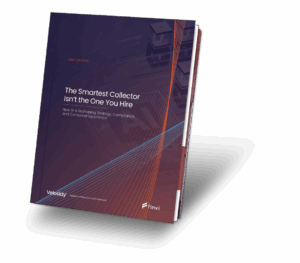Blog & Insights
Frivolous Disputes and Duplicative Disputes: A Case of Reconcilable Differences

On September 29, 2023, the Consumer Financial Protection Bureau (CFPB) released a powerful announcement. It reported:
“More than half of the complaints in our Consumer Complaint Database are about consumer reporting. In the last year, the CFPB has received an increasing number of complaints related to consumer reporting compared to prior years. The most common complaints are about inaccurate information, but consumers have increasingly reported improper use of their credit reports. The CFPB recently kicked off a rulemaking process to address some acute risks that consumer reporting poses for American families, including removing medical debt from credit reports and preventing misuse and abuse by data brokers.”
To use one of the more commonly coined phrases of today, let’s unpack this announcement.
- Of the 4 million complaints received by the CFPB since it opened its doors in 2010, 50% are about credit reporting issues.
- The CFPB has data furnishers in its crosshairs.
- The CFPB is willing to use its power to destroy the integrity of the credit reporting system in the interest of consumer protection.
As a result of the CFPB’s increased focus on Fair Credit Reporting Act (FCRA) enforcement actions and rulemaking, fewer third-party debt collectors are reporting accounts to credit reporting agencies. This is because the risk of liability, coupled with the cost of compliance, outweighs any benefit from reporting.
One of the most misunderstood compliance requirements for third-party debt collectors that also furnish consumer data to credit reporting agencies is understanding the difference between a frivolous dispute under the FCRA and a duplicative dispute under Regulation F.
Understanding FCRA frivolous disputes – The basics of workflow
12 CFR Part 1022 – Fair Credit Reporting (Regulation V) § 1022.43 Direct disputes
Regulation V is the interpretive Regulation for the Fair Credit Reporting Act (FCRA). Among other requirements and duties, it requires a data furnisher to conduct a reasonable investigation of direct and indirect disputes (i.e., E OSCAR dispute).
In the case of a direct dispute, the FCRA gives data furnishers the power to declare a direct dispute as frivolous or irrelevant under certain circumstances. Once a dispute is determined to be frivolous or irrelevant, or one of the Regulation V investigation exceptions applies, the data furnisher is no longer required to investigate the direct dispute.
A dispute qualifies as frivolous or irrelevant if it:
- Is not in writing
- Does not contain the minimum elements of a direct dispute
- Does not include enough information for the data furnisher to investigate the disputed information, or
- Is substantially the same as a prior, written, direct dispute or an indirect E OSCAR dispute previously investigated and responded to by the data furnisher.
The seven exceptions to the dispute investigation requirement include disputes that pertain to:
- The consumer’s demographic information
- The identity of past or present employers
- A request for a consumer report
- Information derived from public records, such as judgments, bankruptcies, liens, and other legal matters
- Information related to fraud alerts or active duty alerts
- Information provided to a consumer reporting agency by another furnisher; or
- The furnisher has a reasonable belief that the direct dispute is submitted by, is prepared on behalf of the consumer by, or is submitted on a form supplied to the consumer by, a credit repair organization.
There is no limit placed on the length of time a consumer must file a direct dispute directly with the data furnisher. As long as the party that reported the account to the credit reporting agency is the data furnisher of record, the data furnisher that reported the account is responsible for investigating the dispute unless:
- The data furnisher can declare the direct dispute to be a frivolous or irrelevant dispute, or
- The dispute falls subject to one of the exceptions listed above.
Notice of determination – Frivolous or irrelevant dispute
There is a caveat to declaring a dispute frivolous or irrelevant. Upon determining whether the dispute is frivolous or Irrelevant or one of the seven dispute types that do not require investigation, the data furnisher must provide the consumer with a notice of determination. This notice of determination must:
- Be provided to the consumer not later than five business days after determining a dispute is frivolous or irrelevant
- Include the reasons for the furnisher’s decision
- Identify any additional information required to investigate the disputed information, and
- Be provided by mail or, if authorized by the consumer for that purpose, by any other means available to the furnisher.
Investigations of disputes are time-consuming and labor-intensive. Therefore, knowing when an FCRA dispute must be investigated and when it does not require an investigation is critical.
Understanding Reg F duplicative disputes – The basics of workflow
Duplicative dispute 12 CFR Part 1006 – Fair Debt Collection Practices Act (Regulation F) § 1006.38 Disputes and requests for original-creditor information
Like the FCRA, the Fair Debt Collection Practices Act (FDCPA) and Regulation F permit the third-party debt collector to not investigate a dispute if the debt collector declares the dispute as duplicative. Per Regulation F, a duplicative dispute means a dispute submitted by the consumer in writing within the validation period:
- Is substantially the same as a dispute previously submitted by the consumer in writing within the validation period for which the debt collector already has investigated and responded to, and
- Does not include new and material information to support the dispute.
Upon determining the dispute is a duplicative dispute, the debt collector has two options. It can:
- Notify the consumer in writing or electronically (if it has e-sign consent) that the dispute is duplicative, the reasons the collector reached that conclusion and refer the consumer to the debt collector’s response to the earlier dispute, or
- Cease communication of the debt until it provides the consumer with a copy of the verification information or the name of the original creditor.
Summary of requirements
This summary chart will help identify the differences between frivolous or irrelevant disputes and duplicative disputes and the support workflow for each.
| Frivolous Dispute – FCRA | Duplicative Dispute – FDCPA/Reg F | |
| Time limit | Consumer may submit any time while the account is being reported to a CRA | Consumer may only submit within 30-day validation period |
| Writing requirement for written dispute to debt collector | Yes, must be in writing. See specific requirements | Yes, must be provided in writing. See specific requirements |
| Minimum content requirements | Yes, and unique to FCRA | Yes, and unique to FDCPA |
| Duty to investigate | No, if determined frivolous or irrelevant | No, if determined to be duplicative |
| Limits on # of disputes | Unlimited | Unlimited but must be submitted during validation period |
| Who must comply | Applies to all data furnishers regardless of industry | Applies only to third-party debt collectors |
| Writing requirement for notice of determination to consumer | Yes, or any other method approved by consumer | Yes, send notice by US mail or electronically in the manner required by § 1006.42 |
| Deadline to send notice | Provide notice of determination to consumer not later than five business days after making the determination | None. However, debt collector must cease collections of the debt until notice of duplicative dispute is provided to consumer |
| E-sign | Not expressly required for electronic delivery of notice | Expressly required for electronic delivery of notice |
Do you have more compliance questions? Check out our Compliance Toolkit where you can get reliable information to understand how to adapt your operation to be compliant.

